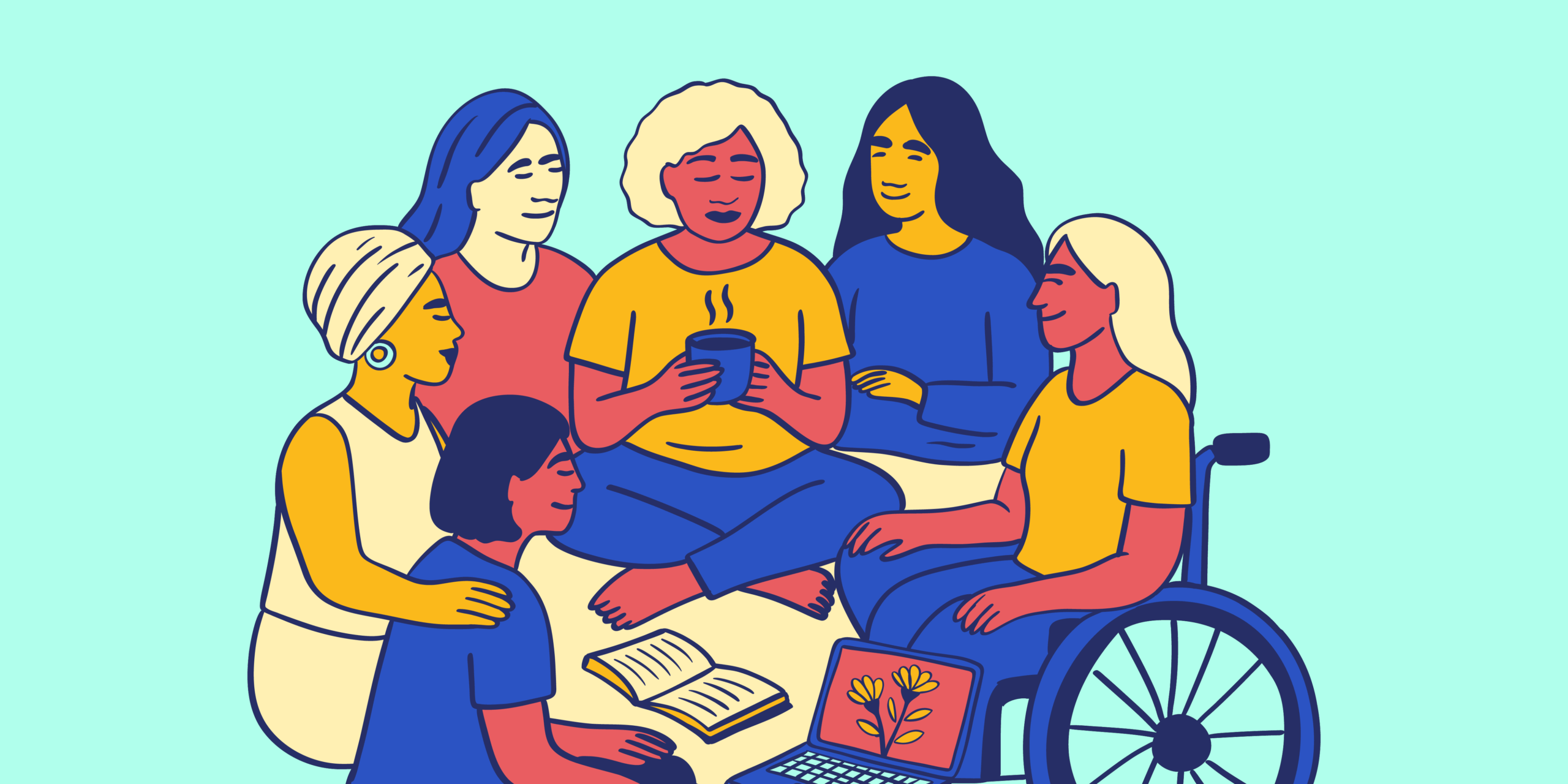The financial resilience collaboration brought together two women’s funds: Women’s Fund Z and Women Fund Tanzania Trust.
Collaboration Learning and Insights
Financial Resilience: Collaborative Learning Adds Up
In a free-market economy, collaboration and financial success do not always go hand in hand. But in this remarkable Fenomenal Funds project, Women’s Fund Z and Women’s Fund Tanzania Trust (WFT Trust) have demonstrated that investing in collaborative financial learning adds up.
In this blog, we will explore the value of collaboration for financial resilience and share some of the emerging insights into how women’s funds can strengthen their feminist financial resilience.
Getting Practical: What We Learned About Collective Care
The point of activism is to create change in systems that are unfair: challenge people and institutions that cause harm, call them to account, and propose alternatives. Their work disrupts the status quo. And it is hard work. Challenging powerful people and systems often provoke a backlash. The consequences—whether personal or organizational—can range from inconvenient to deeply harmful.
Feminist Funds Database
Two collaborations aimed to enhance grantmaking by systematizing processes through the use of cloud-based customer relationship management software. The Global Fund for Women, alongside the Secretariat of the Prospera International Network of Women’s Funds, developed the open-source system to facilitate women’s funds to make grantmaking and data analysis more efficient and accessible. Initially, this group was set up as one large collaborative, but discussions emerging from initial meetings demonstrated the need to divide the group based on their needs and knowledge of the topic. What emerged were two collaborations:
Participatory Grantmaking
The participatory grantmaking (PGM) collaboration involved four women’s funds—Women First International Fund, Women Win, Women’s Fund Asia, and Fondo Semillas. Their work was organic and evolved after the initial 13 groups were formed through the Collaboration Labs.
Narrative Power
Two collaborations—the Alliance of Women’s and Feminist Funds of Latin America and the Caribbean (the Alliance) and On the Right Track (OTRT)—illustrated different approaches to narrative power in feminist movements. The grant enabled the Alliance to document its history and shape the narrative of its contributions, while OTRT supported the work of three European and two Latin American funds. OTRT has worked for five years to shape narratives that expand democracy and oppose fundamentalisms, fake news, and hate speech. Both collaborations were preexisting but support from Fenomenal Funds provided resources to further solidify their relationships, allowing them to intentionally move towards their shared goals and vision.
Feminist Organizational Development
The practice of feminist organizational development anchored the work of two collaborations: Calala Fondo de Mujeres and Mediterranean Women’s Fund: Because both funds face similar movement contexts and demands for stronger feminist funding infrastructure, they focused on what they could learn together about the contribution of transformative feminist leadership to organizational evolutions. Astraea Lesbian Foundation for Justice, International Indigenous Women’s Forum, and Women Win: These funds focused on collective learning to embed intersectional feminism and decolonization in their organizational structures, processes, operations, grantmaking, advocacy, and programs.
Feminist Funds Database
Two collaborations aimed to enhance grantmaking by systematizing processes through the use of cloud-based customer relationship management software. The Global Fund for Women, alongside the Secretariat of the Prospera International Network of Women’s Funds, developed the open-source system to facilitate women’s funds to make grantmaking and data analysis more efficient and accessible. Initially, this group was set up as one large collaborative, but discussions emerging from initial meetings demonstrated the need to divide the group based on their needs and knowledge of the topic.
Resource Mobilization
Two collaborations were formed on resource mobilization. The Collaborative Learning on Resource Mobilization brought together Calala Fondo de Mujeres, Women First International Fund, Reconstruction Women’s Fund, Ecumenical Women’s Initiative, ELAS+, and Doria Feminist Fund to enhance resource mobilization strategies, focusing particularly on ethically aligned corporate partnerships. A second collaboration involved three diverse funds strategizing on resource mobilization approaches in restrictive political contexts.
Feminist Monitoring, Evaluation, Accountability, and Learning
The Feminist Monitoring, Evaluation, Accountability, and Learning (FMEAL) Collaboration Initiative brought together four national women’s funds and eight partners, with two from each fund. The decision to include movement partners was unique in the Collaboration Labs. The results demonstrate the value of broader stakeholder participation and the ability to work together with movement partners to generate knowledge, share power, and take action.


